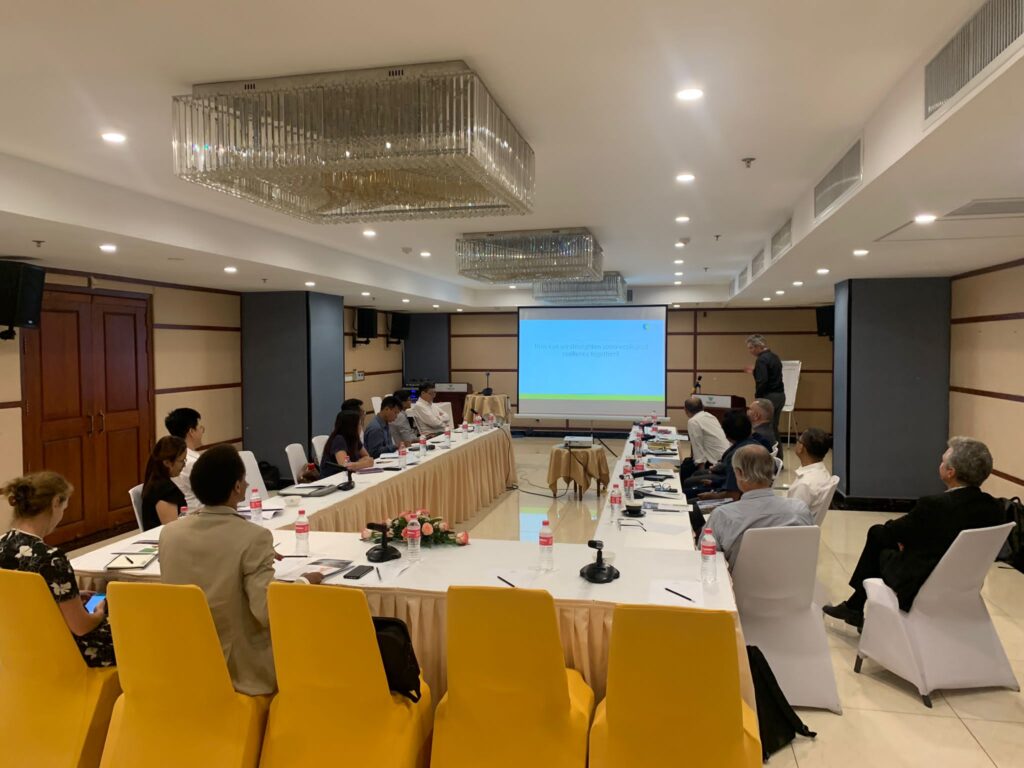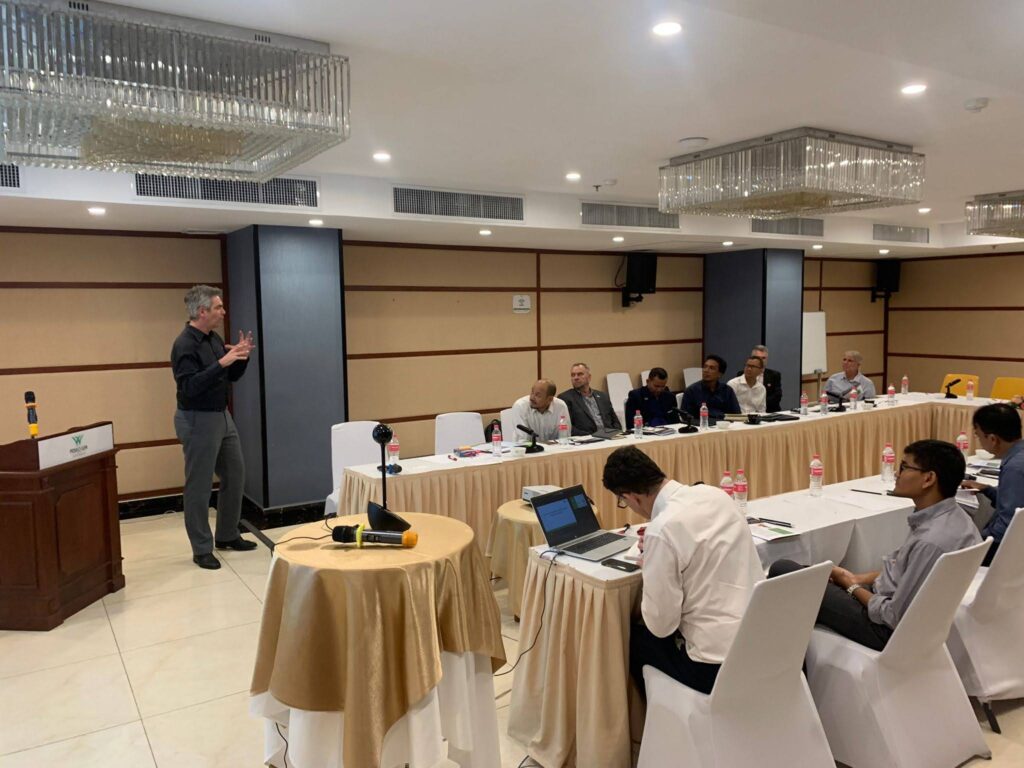On 13 December 2023, Uni4Coop and WWF Belgium jointly organized an introduction workshop on social-ecological resilience in Phnom Penh, Cambodia with 20 participants of 8 Cambodian and Belgian organisations and from the Belgian international cooperation administration and the Belgian Embassy in Bangkok.
After an introduction on SECORES and the social-ecological resilience approach, the participants exchanged on challenges and opportunities related to social-ecological resilience in Cambodia and explored opportunities for future exchange and collaboration.
In two working groups, participants shared experiences and potential links between the activities of their organisation and social-ecological resilience. The first group related to improved rights and policies and to awareness and knowledge; the second group related to more field oriented strategies for conservation and restoration of ecosystems and access to and management of ecosystem services.
Some general observations made during the workshop include
- Regarding rights, policies, awareness and knowledge
- A very fast conversion of ecosystems can be observed in Cambodia, which is a threat to social-ecological resilience. At high level, natural systems only seem to be appreciated in terms of GDP contributions.
- One of the main challenges related to resilience in Cambodia is waste management, and more specifically plastic bags. To tackle this problem, both awareness raising and advocacy are needed to push for the elaboration of a sustainable production and consumption roadmap / policy.
- Cambodia has a young population, but there is a need to raise awareness on the importance of nature and ecosystem services, e.g. through organizing youth camping.
- Legislation can improve livelihoods, but sometimes laws can also limit the rights of local communities. (eg. laws which don’t allow local communities to collect wood). This needs to be taken into consideration.
- Regarding conservation/restoration of ecosystem and access/management of ecosystem services
- Farmers are often facing the problem of accessing funding to invest in their farm and are often in debt. Credit expected by the farmer arrives late and farmers need to borrow money to other to have cash for their activities and repayment is at high interest rate.
- Community forestry and fisheries face the challenge of (1) relatively short timeframe for the community to access and use resources , and (2) not enough rights on the use of the natural resources
- It is Important to take more into account gender and the role of women in socio-ecological resilience, for example the important role that women often take in the community entreprises (leader, accountant,…). And to work on knowledge management (from children to farmers’ cooperatives).
As possible follow-up of this introduction workshop, participants are interested to further explore the link between agro-ecology and social-ecological resilience, to deepen education linked to community entrepreneurship and to tackle the problem of plastic pollution.


